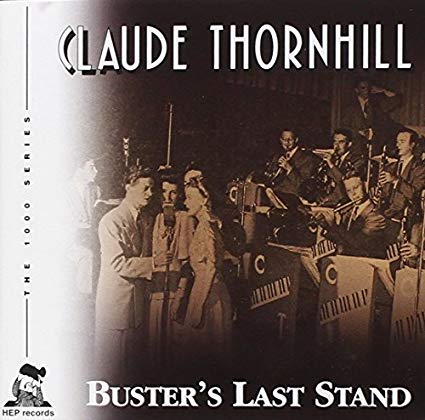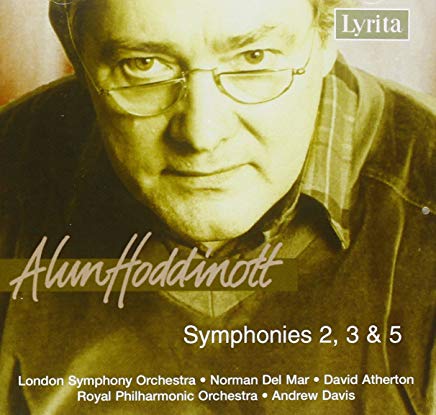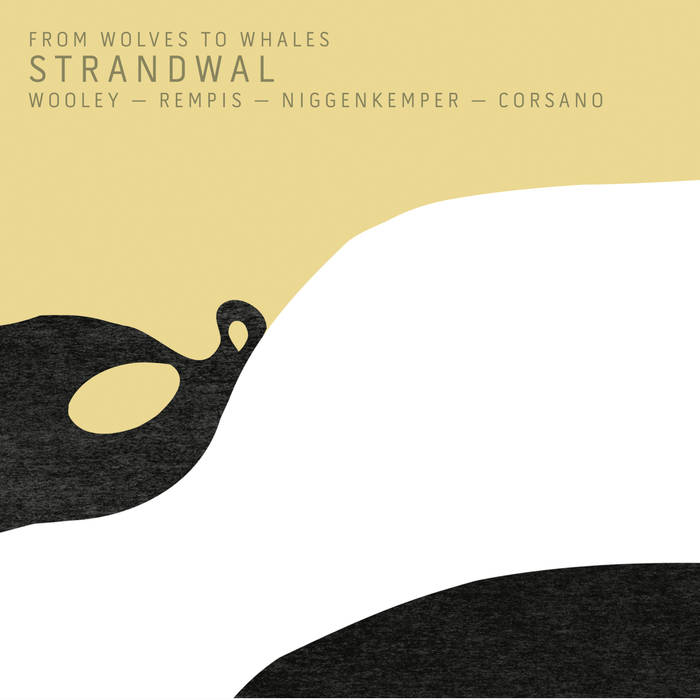-
Posts
13,205 -
Joined
-
Last visited
-
Donations
0.00 USD
Content Type
Profiles
Forums
Events
Blogs
Everything posted by Larry Kart
-
BTW, don't get the impression that this book is filled with gossip. A series of interviews with members of Schoenberg's circle, it's full of fascinating information. E.g. this from Felix Greissle about Schoenberg's teaching methods: "[Except in performances] he never touched otherwise contemporary music. He talked most about Beethoven, very much about Bach, little about Mozart and Haydn. About Mozart he didn't talk because he found him too complicated, invariably too complicated, because too irregular ... seven measure phrases and so on.... Otto Deutsch adds: "Bach [to him] was a modern composer; Brahms, a progressive composer; Mozart, the most modern of all! He said: 'I am that pupil of Mozart!' -- not one, that -- the only! He said that. I heard it there."
-
Re: practicalities of the incident, two comments from a classical board where I posted this story and where doubts were then raised about what Poldorer could have seen: 1) How about the following reasoning? The sweat caused [Webern's] clothes to become semi transparent. One thing you could tell was that he was very muscular. Another you could tell was that he was very manly. So manly didn't refer to his upper body muscles. 2) Possibly the most traumatic moment of my life (which I had mercifully forgotten about until just now) was coming out of the surf at the beach as a teen wearing a brand new white bathing suit, which turned out to be transparent when wet. Oy. No -- he had everyone in the room sent to Outer Mongolia.
-
I think the repeated "very" and "I must say" point to my interpretation of the passage, that plus the emphasis on how sweaty Webern could get. Further, if so, additional context for Poldorer's remark is the common perception at the time that Webern was a "very nervous, rather delicate person" -- "a quite small, slight, tender man." Further context, is the well-known fact that fairly often Webern would get so absorbed in minutely rehearsing a small portion of one work on a program that he would call in sick at the last minute and another conductor would have to take over. In other words, Poldorer almost certainly wouldn't have mentioned what he saw or thought he saw if it wasn't to his mind paradoxical -- e.g. mild-mannered reporter Clark Kent is actually Superman. Sorry if what I posted struck some as vulgar; I just found it amusing. After all, one doesn't get to heard that many humanizing tales about Schoenberg, Berg, and Webern. In a somewhat similar vein, from the same book, there's this: In the teens of the century, some members of Schoenberg's circle secretly took a sample of his handwriting to a celebrated Viennese graphologist and clairvoyant, without of course identifying who it came from, and asked the man to interpret it. After speaking of the writer's tyrannical traits, his absolute belief in his genius etc, the graphologist concluded, "This man thinks he is the Emperor of China!" Many years later, in California, several members of Schoenberg's circle (Steuermann, Erwin Stein, etc,) are at a gathering at Schoenberg's house in Los Angeles and are reminiscing about the graphologist incident, laughing and chuckling about it in a corner of the room. Schoenberg demands to know what's going on, and finally on of them works up the nerve to finally tell S. the story of what they had done so many years ago, with its "This man thinks he is the Emperor of China!" conclusion. To which S. angrily replies: "What? What? I AM the Emperor of China!"
-
I can believe it, Relyles, that Akinmusire made for a better partner. When I saw Turner with Avishai about a year and a half ago at Constellation in Chicago, I thought my brain was going to congeal from all the faceless noodling; for this, Avishai seemed to be in good part responsible. He sounded like Don Ferrara on Quaaludes. BTW, I found Turner fairly interesting when he came up; not having followed him that closely over the years, I have no idea how and when he came to be the way he is now.
-
A passage from Joan Allen Smith's "Schoenberg and His Circle: A Viennese Portrait" (Schirmer Books, 1986). The speaker is Wolfgang Ploderer, his father was a close friend of Alban Berg's, recalling Webern as a conductor: "He was very impressive. He was a very good conductor.... He was quite nervous.... If you see the photographs, you think he is quite a small, slight, tender man. He had a very firm body, and when he made the rehearsals ... -- he was conducting in shirtsleeves only -- and then he sweated so much and you could see that he was very muscular and very, very manly I must say. It was a very great impression to me...."
-

"Claude Thornhill: Godfather of Cool"
Larry Kart replied to ghost of miles's topic in Jazz Radio & Podcasts
This is a good one. Go for any Thornhill compilations that are on the Hep label and you can't go wrong in terms of sound quality, number of selections, etc. -
Just answered my own question. It was Fran Scott, later Fran Scott Attaway, played a major role in determining the design for Impulse albums.
-
Back in the day, she designed a number of album covers for ABC-Paramount and other labels. Was it Flo? And what became of her? Don't know why I just thought of this, but I did.
-
Wadada for sure, haven't heard much recent Ragin.
-
I like what I've heard of Alessi. Finlayson's work I don't know. FWIW, the last time I heard Coleman in person (in Philadelphia last summer) I succumbed to boredom. I like Wooley, Santos Silva, and Bynum and like like you have mixed feelings about Evans. Jamie is a friend and a favorite, as is Berman. Knuffke I need to hear more of, Wilkes has yet to light my fire. Herb Robertson absolutely.
-

Dave Madden, Gail Madden, Bob Graettinger and Mulligan
Larry Kart replied to sgcim's topic in Artists
Also like what Brookmeyer's "Open Country" sounds like. Always found that line dangerously catchy and very representative of the early Brookmeyer's melodic and rhythmic traits. -
Any thoughts on him? I've listened to two of his albums, and while he has chops (albeit of a rather classical sort), I don't yet get, if I ever will, what he's saying. There is a some sense of personal habits of dissonance, but they don't seem to coalesce into melodic shapes or even shapes period but instead kind of sound like habits of dissonance being stretched out/extended. Rhythmically there nothing "wrong" but nothing notably "right," as in striking, communicative either. As a composer, "blare-y" is the the word that comes to mind. I'm curious to hear other thoughts though. Oops -- I see I've asked this question before.
-

What Classical Music Are You Listening To?
Larry Kart replied to StarThrower's topic in Classical Discussion
Interesting composer. Without being all that "modern" in style (his initial model-mentor was Alan Rawsthorne), Hoddinott's music is exceedingly hard for me to get a grip on. Forceful gestures, often brass-dominant, in one direction are followed, often abruptly by other similar gestures in another direction, and then by swatches of introspective woodwind and strings "night-music," etc., etc. -- all typically organized in arch-like shapes. There are times when I think Hoddinott (I have two more CDs of his work) just has a disordered mind or vocabulary, but then the next time through I'm close to being convinced that it's all as it must be. In any case, given all the "modern" music that I've listened to over the years, it's quite strange for me to encounter a non-"far-out" composer this side of an outright eccentric like Havargal Brian or Rude Langaard or Mathias Vermeulen whose musical language I can't quite grasp. -

What Classical Music Are You Listening To?
Larry Kart replied to StarThrower's topic in Classical Discussion
Partial listing of HNH recordings: https://www.discogs.com/label/365742-HNH-Records I got a lot of them and learned a lot from them, especially about 20th Century English composers -- e.g. Bridge, Finzi. Rawsthorne, Berkeley. -
More on Handy, and scroll down for Gene Lees' scarifying piece on Stan Getz. http://www.donaldclarkemusicbox.com/jazzletter/1997-5.pdf
-
His New York Suite can be heard on the Handy website; will listen to it myself shortly.
-

Stan Getz Quartet at the Village Gate November 26th, 1961
Larry Kart replied to soulpope's topic in New Releases
Wikipedia: "[Keane] was Bill Evans' manager and producer from 1963 until his death in 1980." -
Previously I wrote that the woman on the cover was Ruby's mother. I see now that it was his landlady.
-

Stan Getz Quartet at the Village Gate November 26th, 1961
Larry Kart replied to soulpope's topic in New Releases
Interesting post. But was Helen Keane more or less in charge of Evans' career when "Jazz in the Space Age," with that duet with Bley, was made? I would think that album was an offshoot of Evans' previous fruitful relationship with George Russell (e.g. Russell's RCA "Jazz Workshop" album and his "All About Rosie," from 1956 and '57 respectively), which I believe was well before Keane arrived. -

Stan Getz Quartet at the Village Gate November 26th, 1961
Larry Kart replied to soulpope's topic in New Releases
My take on Evans' take on that piece from George Russell's "Jazz in the Space Age" with Bley: 'Quite articulate about his music, in a 1964 interview Evans said this: “The only way I can work is to have some kind of restraint involved, the challenge of a certain craft or form and then to find the freedom in that…. I think a lot of guys…want to circumvent that kind of labor….” Then there is this Evans statement: “I believe that all music is romantic, but if it gets schmaltzy, romanticism is disturbing. On the other hand, romanticism handled with discipline is the most beautiful kind of beauty.” Plausible words, perhaps, but the value that Evans seemingly places on restraint in itself leads one to ask, What is being restrained and why? Evans’s “challenge of [working within] a certain craft or form” is not merely an account of his own necessary practice; it lends to that practice an aura of moral virtue (“I think a lot of guys …want to circumvent that kind of labor….”). In other words, for Evans certain sorts of musical labor are not only valid but they also validate. And should an aesthetically valid outcome be reached in a seemingly non-laborious manner, that can be disturbing. Thus in 1964 , after acknowledging that the brilliant, lucid, and “completely unpremeditated” two-piano improvisation that he and Paul Bley played on George Russell’s 1960 album Jazz In The Space Age “was fun to do,” Evans says: “[But to] do something that hadn’t been rehearsed successfully, just like that, almost shows the lack of challenge involved in that kind of freedom.” A Puritanical Romantic, that's what Evans was? -
Ted Curson, trumpet; Pony Poindexter, alto; Booker Ervin, tenor; Nathan Davis, flute; Kenny Drew, piano; Jimmy Woode, bass; Edgar Bateman, drums
-

What's the earliest recorded stereo release in your collection
Larry Kart replied to medjuck's topic in Audio Talk
Also, IIRC there was an intervening early '80s LP reissue of "JJ Johnson and Stan Getz at The Opera House," with the three IMO inferior stereo tracks subbed for the original 1957 LP's mono tracks; there wasn't room on the LP reissue for everything. And knowledgable annotator Bob Porter, of all people, claimed in the LP's liner notes that the stereo tracks were much better performances. To steal a line from LeRoi Jones, on this occasion Porter needed ear braille. -

What's the earliest recorded stereo release in your collection
Larry Kart replied to medjuck's topic in Audio Talk
Yes indeed, and IIRC the 1986 CD edition gets things backwards. The three "up" numbers and "My Funny Valentine" were recorded twice -- once in LA and once in Chicago -- but the CD liner notes say stereo in Chicago and mono in LA, but when I checked against my old original issue LP mono recording, the LP's far superior mono performances presumably came from Chicago, although Granz was capable of getting the venue wrong on anything. BTW, one likely reason the (I assume Chicago mono performances) were superior to the (I assume) LA stereo ones, is that on the stereo tracks the rhythm section was spread widely over the stage for stereo effect (and thus perhaps it was less easy for the horns to hear/feel them and for the rhythm section to hear/feel each other) while on the mono tracks the rhythm section was (or sounds like it was) in one place. In any case, Stan and J.J. are inspired on the mono takes. -

Stan Getz Quartet at the Village Gate November 26th, 1961
Larry Kart replied to soulpope's topic in New Releases
I heard Kuhn with Coltrane (and Steve Davis and Pete LaRoca) at the Sutherland Lounge in Chicago in probably1960 ... can't be sure exactly when but it was before "My Favorite Things" came out because when they played "MFT" the thought of Coltrane playing that tune was totally new to me -- also it took me a while to register that he was playing a soprano sax; pretty much no one else played that horn at the time, other than Steve Lacy. As I think I've mentioned before, the Ellington band was staying at the Sutherland, and between sets Johnny Hodges, Trane's ex-boss and a great soprano soloist until he stopped playing the instrument in the early '40s, came over to Trane, and they sat there at the bar passing the horn back and forth, no doubt discussing its virtues and vicissitudes. Getting back to Kuhn, my memory is that he sounded just fine with the band, as did LaRoca. -
_forumlogo.png.a607ef20a6e0c299ab2aa6443aa1f32e.png)



